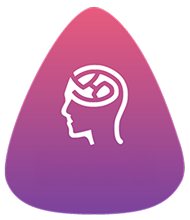Read a viewpoint opposite to yours on your market, summarize its strongest point in a single sentence.
Pause and ask: “What’s another way to see this?” when reacting strongly to a difficult founder situation.
Choose one work habit today to do differently, change the order, method, or tool you normally use.
Read an article from a field outside your own, note one idea you could apply directly to your venture.
Challenge your default choice in a low-stakes task, try the opposite to stretch mental flexibility.
Use the phrase “That’s interesting, tell me more” when someone challenges your thinking.
Journal about a time when rigid thinking blocked innovation, what might openness have created instead?
Reflect on your response to pivots, do you resist, explore, or experiment with new possibilities?
Describe a time you adapted to a surprise in your venture, what thinking helped you shift perspective?
Write about a belief you’ve outgrown as an entrepreneur, what influenced you to finally change your mind?
List three recent startup challenges, did you explore multiple angles or get stuck in just one?
Explore how curiosity shows up in your thinking, when do you ask “what if,” and when do you shut it down?
Present a new concept that challenges the norm, invite discussion, not instant agreement.
Switch roles in a brainstorming session, see your startup through a teammate’s perspective.
Do something this week that stretches you intellectually, then reflect on what you learned.
Pick a topic you know well and explain it as if to an investor, clarity sharpens thinking.
Offer a “yes, and” response in disagreement, build constructively on others’ ideas.
Ask your team to challenge your thinking, respond with curiosity and clarifying questions.
Ask an advisor to point out when you seem rigid, what habits signal that in your style?
Share one recent mindset shift about your startup, ask a peer what shift they’ve made.
Ask a fellow founder for feedback on your flexibility, do you invite or block new ideas?
Start a conversation with an entrepreneur outside your field, ask how they approach change.
Share how you processed a strategic decision, ask for feedback on where you were rigid.
Create a “blind spot swap” with a peer founder, trade one overlooked area with each other.
Reframe “That’s not how it’s done” as “What if I test it once?”, treat it as an experiment.
Replace “That won’t work” with “Under what conditions could this succeed?”, write one scenario.
Reframe uncertainty as optionality, more paths forward, not just more problems.
When stuck, say: “Let’s flip it”, assume the opposite is true and brainstorm ideas.
Reframe disagreement as information, not threat, what data point could they be adding?
Reframe mistakes as data in your founder lab, adjust your hypothesis and test again.
Notice when you instantly reject a new idea, what emotion or bias could be driving that reaction?
Track your inner response when challenged on strategy, curious, threatened, or indifferent at first?
Observe how you respond to surprise user feedback, freeze, pivot, or adapt, what’s your first instinct?
Watch someone handle rapid market shifts, what thoughts seem to guide their flexible behavior?
Observe meetings where innovation thrives, what mindset traits are visible in those rooms?
Track your language in uncertain moments, do you ask “what if,” or insist “that’s not possible”?


 Give Feedback
Give Feedback
